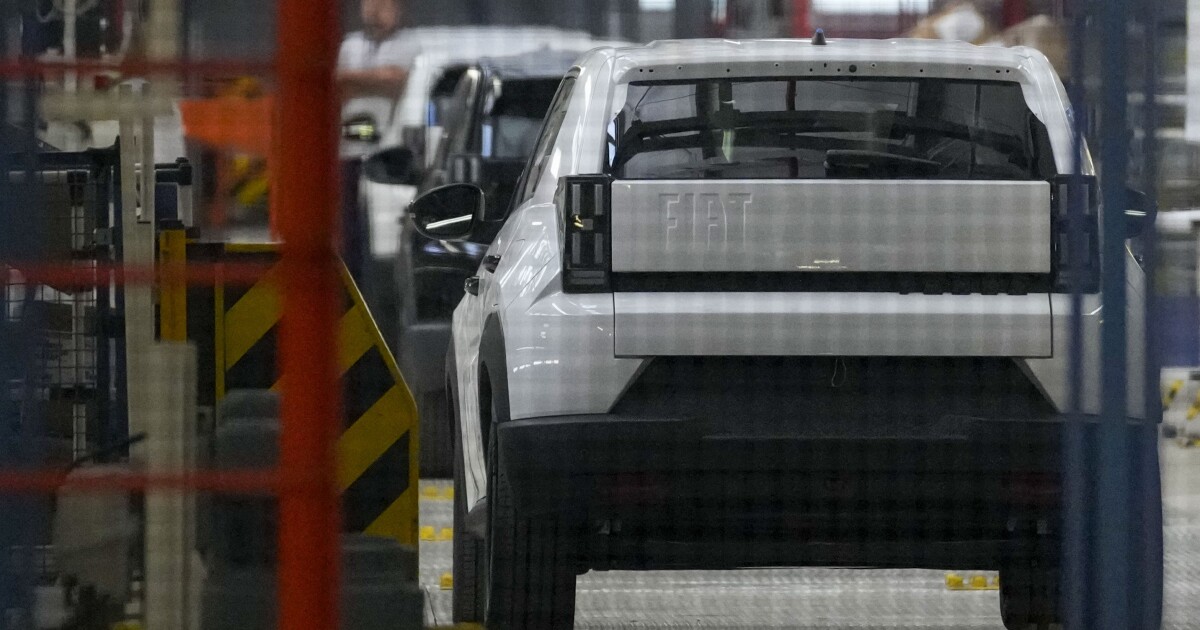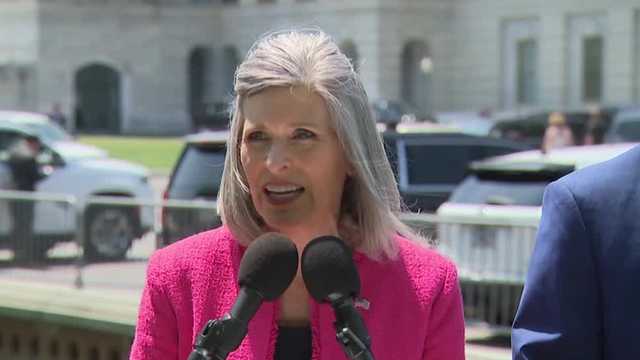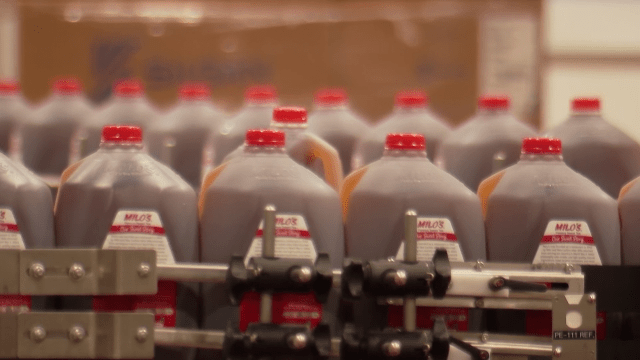Wheels of Change: Trump's Bold Tariff Move Revs Up American Auto Manufacturing
Manufacturing
2025-03-26 21:35:50Content

In a bold move that could reshape the automotive industry, President Donald Trump unveiled sweeping 25% tariffs on imported vehicles during a dramatic White House press conference on Wednesday. The administration argues that these substantial trade barriers will reinvigorate American manufacturing, providing a significant boost to domestic car production and protecting U.S. autoworkers.
The tariff announcement signals a potentially transformative moment for the automotive sector, as the Trump administration continues its aggressive stance on international trade. By imposing hefty import taxes, the White House aims to level the playing field for American car manufacturers and encourage companies to invest more heavily in domestic production facilities.
Industry experts and economists are closely watching the potential ripple effects of this decision, which could dramatically alter the competitive landscape of the global automotive market. While supporters praise the move as a win for American workers, critics warn of potential retaliatory measures from international trading partners and increased costs for consumers.
Trade Tensions Escalate: Trump's Automotive Import Strategy Sparks Global Economic Debate
In an unprecedented move that signals the complex landscape of international trade policy, the Trump administration has strategically positioned itself to reshape the automotive manufacturing ecosystem through aggressive tariff implementation, potentially triggering significant economic repercussions across global markets.Transforming Automotive Manufacturing: A Bold Economic Intervention
The Strategic Tariff Landscape
The implementation of 25% tariffs on automotive imports represents a calculated economic maneuver designed to fundamentally restructure domestic manufacturing dynamics. By imposing substantial trade barriers, the administration aims to create a protective environment for American automotive producers, compelling international manufacturers to reconsider their global production strategies. Economists and industry analysts have been closely examining the potential downstream effects of this aggressive trade policy. The tariffs are not merely a punitive measure but a sophisticated economic instrument intended to incentivize foreign automotive companies to establish manufacturing facilities within United States borders, thereby generating domestic employment opportunities and stimulating local economic growth.Domestic Manufacturing Renaissance
The tariff strategy emerges as a bold attempt to reinvigorate the American automotive manufacturing sector, which has experienced significant challenges in recent decades. By creating economic disincentives for foreign imports, the policy seeks to redirect investment towards domestic production capabilities, potentially triggering a comprehensive industrial transformation. Manufacturing experts suggest that such protectionist measures could catalyze substantial investments in technological innovation, workforce development, and advanced production infrastructure. The potential long-term implications extend beyond immediate economic considerations, potentially reshaping the entire automotive industrial landscape.Global Trade Dynamics and Geopolitical Implications
The automotive import tariffs represent more than an isolated economic policy; they symbolize a broader geopolitical strategy aimed at repositioning the United States within the intricate global trade network. International trade relations could experience significant recalibration as competing nations evaluate and potentially respond to these aggressive economic measures. Diplomatic channels are likely to be engaged in complex negotiations, with potential retaliatory measures from affected countries creating a multifaceted international economic dialogue. The tariffs could potentially trigger a cascading effect of trade adjustments, fundamentally altering established international manufacturing and trade relationships.Economic Complexity and Market Adaptation
The implementation of these tariffs introduces a sophisticated economic experiment with far-reaching consequences. Automotive manufacturers, both domestic and international, must rapidly develop adaptive strategies to navigate this transformed economic landscape. The policy challenges traditional free-trade paradigms and demands innovative approaches to global manufacturing and distribution. Sophisticated economic modeling suggests that while immediate impacts might include increased consumer prices and potential short-term market disruptions, the long-term strategic objectives focus on restructuring fundamental manufacturing ecosystems. The policy represents a nuanced intervention designed to stimulate domestic economic resilience and technological innovation.RELATED NEWS
Manufacturing

Job Shock: Major Southeast Michigan Factory Slims Down, Cuts Nearly 200 Positions
2025-04-16 00:22:52
Manufacturing

Silicon Valley Startup ChEmpower Bags Nearly $20M to Revolutionize Chip Manufacturing Tech
2025-04-24 13:00:00
Manufacturing

Breaking: Finnish Manufacturing Leader Shatters Glass Ceiling at AGCO
2025-04-25 13:05:00





